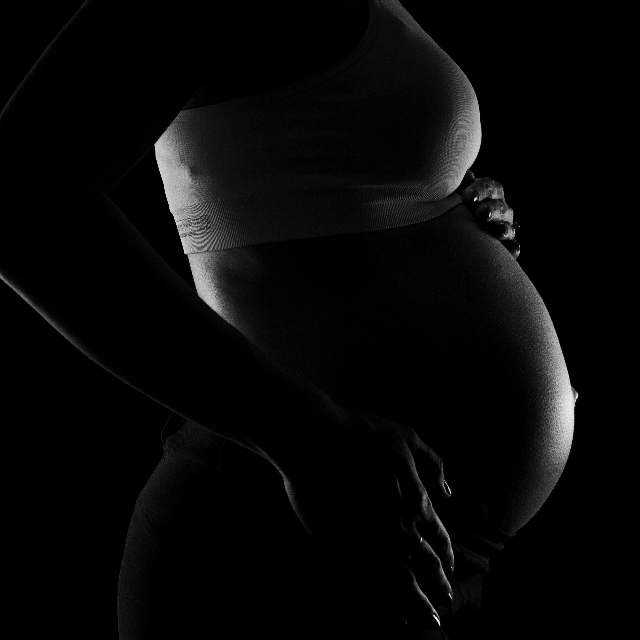
Fifth disease, also known as erythema infectiosum is a common viral infection that primarily affects children. However, if contracted during pregnancy, it can endanger both the mother and the unborn child. The purpose of this article is to shed light on the fifth disease in pregnancy by investigating its causes, symptoms, potential complications, and the precautions expectant mothers should take to protect themselves and their developing babies. Understanding the nature of the fifth disease and its implications for pregnancy is critical for prenatal care and ensuring both mother and child’s well-being.
Understanding Fifth Disease In Pregnancy: Causes And Transmission

The human parvovirus B19 causes the fifth disease, also known as erythema infectiosum.
Pregnant women are especially vulnerable to the fifth disease because their immune systems change during pregnancy.
When a pregnant woman contracts parvovirus B19, the virus can cross the placenta and infect the developing fetus. This transmission has the potential to cause several complications. The virus primarily affects red blood cells, and in rare cases, it can cause severe anemia in the fetus, disrupting oxygen and nutrient supply. Fetal hydrops are a serious condition that can have serious consequences.
Recognizing The Symptoms Of Fifth Disease In Pregnancy
Recognizing the symptoms of fifth disease in pregnancy is critical for early detection and effective infection management. It is important to note, however, that not all people with fifth disease will develop the rash.
Pregnant women who contract the fifth disease may also experience mild fever, headache, fatigue, and joint pain. These symptoms can be mild or severe, and they may resemble common cold or flu symptoms. Pregnant women must be vigilant about any changes in their health and report any concerning symptoms of the fifth disease in pregnancy to their healthcare providers.
A physical examination, medical history, and laboratory testing are used to diagnose the fifth disease in pregnancy. Healthcare providers will look for the characteristic rash and ask about any recent exposures or symptoms. Blood tests can be used to detect and confirm the presence of specific antibodies to parvovirus B19.
Early detection of fifth disease in pregnancy symptoms is critical because it allows healthcare providers to closely monitor the pregnant woman and her baby. Prompt diagnosis allows for appropriate management and, if necessary, intervention.
Potential Complications Of Fifth Disease In Pregnancy
While the fifth disease in pregnancy usually causes mild illness in children and adults, it can be dangerous if contracted during pregnancy. Pregnant women who become infected with parvovirus B19 face an increased risk of complications, and the developing fetus is also vulnerable to the virus’s effects.
One of the main concerns is the possibility of severe anemia developing in the unborn baby. Fetal hydrops is a condition that can cause heart failure, organ damage, and even the loss of pregnancy.
Furthermore, if a pregnant woman contracts the fifth disease near the time of delivery, there is a small chance that the infection will be passed on to the newborn. While uncommon, this transmission can occur through virus exposure in the birth canal or during the delivery process.
To reduce the risk of complications, early detection and management of fifth disease in pregnancy are critical.
Specialized medical interventions may be required in some cases to support the baby’s health and well-being. This includes blood transfusions and other treatments for severe anemia and its complications.
Preventive Measures And Precautions For Fifth Disease In Pregnancy

It is critical to prevent the transmission of the fifth disease in pregnancy to protect the health of both the expectant mother and the developing fetus. Implementing preventive measures and taking necessary precautions can reduce the risk of contracting parvovirus B19 significantly.
Maintaining proper hand hygiene is critical. If soap and water are not readily available, alcohol-based hand sanitizers are an acceptable substitute.
It is critical to avoid close contact with people who have the fifth disease or are showing signs of respiratory infections. Pregnant women should also practice good respiratory hygiene by covering their mouths and nose when coughing or sneezing.
Pregnant women must be educated about preventive measures and precautions by healthcare providers. They provide information on how to reduce the risk of contracting the virus and emphasize the importance of leading a healthy lifestyle, which includes eating a well-balanced diet, exercising regularly, and getting enough rest to support a strong immune system.
If a pregnant woman is exposed to a fifth disease in certain circumstances, her healthcare provider may recommend testing for the presence of antibodies to determine if she has already been infected or is at risk. This data can be used to guide future management and monitoring during pregnancy.
Medical Management Of Fifth Disease In Pregnancy
When a pregnant woman is diagnosed with the fifth disease, medical management focuses on monitoring the mother’s and the developing fetus’s health. The specific approach will depend on the stage of the pregnancy, the severity of the symptoms, and any potential complications.
In most cases, the fifth disease is a self-limiting infection for which supportive care is the primary treatment. This includes getting enough rest, staying hydrated, and dealing with any associated symptoms like fever or joint pain. OTC medications should only be used under the supervision of a healthcare provider.
Regular pregnancy monitoring is essential to ensure the fetus’s health. Additional ultrasounds or blood tests may be recommended by healthcare providers to assess the baby’s growth and detect any signs of complications, such as fetal hydrops. For ongoing evaluation and appropriate management, close communication between the pregnant woman and her healthcare team is essential.
Medical interventions may be required in rare cases where complications arise or severe anemia develops in the fetus. Treatments such as intrauterine blood transfusions may be used to improve the baby’s blood cell production and oxygen supply. These specialized procedures are carried out by trained medical personnel and necessitate close monitoring and follow-up care.
Pregnant women with the fifth disease should follow their healthcare provider’s recommendations and attend regular prenatal visits. Communication about any concerns or changes in symptoms is critical for proper medical management and ensuring the best possible outcomes for both the mother and the baby.
Coping Strategies For Fifth Disease In Pregnancy
Receiving a diagnosis of fifth disease during pregnancy can cause a variety of emotions, including anxiety, worry, and uncertainty. Coping with the infection necessitates not only addressing the physical aspects but also attending to the expectant mother’s emotional well-being.
Obtaining emotional support is an important part of coping with the fifth disease during pregnancy. Sharing concerns and fears can help relieve emotional burdens and promote a sense of reassurance.
Seeking professional assistance is also very beneficial. Therapists and counselors, for example, can provide specialized guidance and coping strategies tailored to the unique challenges faced by pregnant women with fifth disease. They provide a safe environment for people to express their emotions, process their fears, and develop effective coping mechanisms.
Self-care activities are critical for promoting emotional well-being. This can include things like practicing relaxation techniques, participating in hobbies or activities that bring you joy, and getting enough rest and sleep.
Participating in support groups or online communities for pregnant women with fifth disease can provide a sense of connection and camaraderie. Individuals can use these platforms to share their experiences, exchange advice, and find comfort in knowing they are not alone on their journey.
Finally, knowing about the infection and how to manage it is empowering. Accurate information obtained from reputable sources, such as healthcare providers or trustworthy websites, aids in the dispelling of myths and misconceptions, reducing anxiety and promoting a better understanding of the situation.
Importance Of Prenatal Care For Fifth Disease In Pregnancy
For managing the fifth disease during pregnancy, regular prenatal care and open communication with healthcare providers are essential. Attending scheduled appointments allows healthcare providers to monitor the pregnancy’s progress, assess any complications, and provide symptom management advice. Pregnant women can receive the necessary support and medical interventions to protect their health and the well-being of their unborn baby by prioritizing regular prenatal care and maintaining open lines of communication, optimizing the outcomes of their pregnancy.
Managing Anxiety And Concerns About Fifth Disease In Pregnancy
Receiving a fifth disease diagnosis during pregnancy can cause anxiety and raise a variety of concerns. Expectant mothers must actively manage their anxiety by seeking support from loved ones, practicing relaxation techniques, and seeking professional help if necessary. Pregnant women can navigate the challenges of the fifth disease with greater calm and confidence if they actively manage their anxiety and address their concerns.
Prevention Of Fifth Disease In Pregnancy
Implementing preventive measures, such as practicing good hygiene, avoiding contact with people who are displaying symptoms, and adhering to healthcare provider recommendations, is critical to lowering the risk of transmitting fifth disease to the developing fetus and protecting the baby’s health.
The Role Of Vaccination In Fifth Disease Prevention
There is currently no specific vaccine available for the fifth disease. Keeping pregnant women up to date on routine vaccinations, such as the MMR vaccine, can provide indirect protection by preventing other viral infections that could harm the mother or fetus.
Conclusion
Pregnant women can protect themselves and their unborn babies by understanding the symptoms, risks, and potential complications associated with the fifth disease. Every step, from taking preventive measures to seeking medical advice, managing anxiety, and prioritizing regular prenatal care, contributes to a healthier pregnancy journey. Expectant mothers can navigate the complexities of the fifth disease in pregnancy with confidence by staying informed, seeking support, and maintaining open communication with healthcare providers, ultimately leading to the best possible outcomes for both mother and baby.
Leave a Reply
You must be logged in to post a comment.